Trauma Therapy by Trish
Emotional Wellbeing & Educational Support Services
As an Advanced Drawing & Talking Practitioner I can offer a range of techniques on a 1-2-1 and group basis to support Emotional Wellbeing, for pupils & staff.
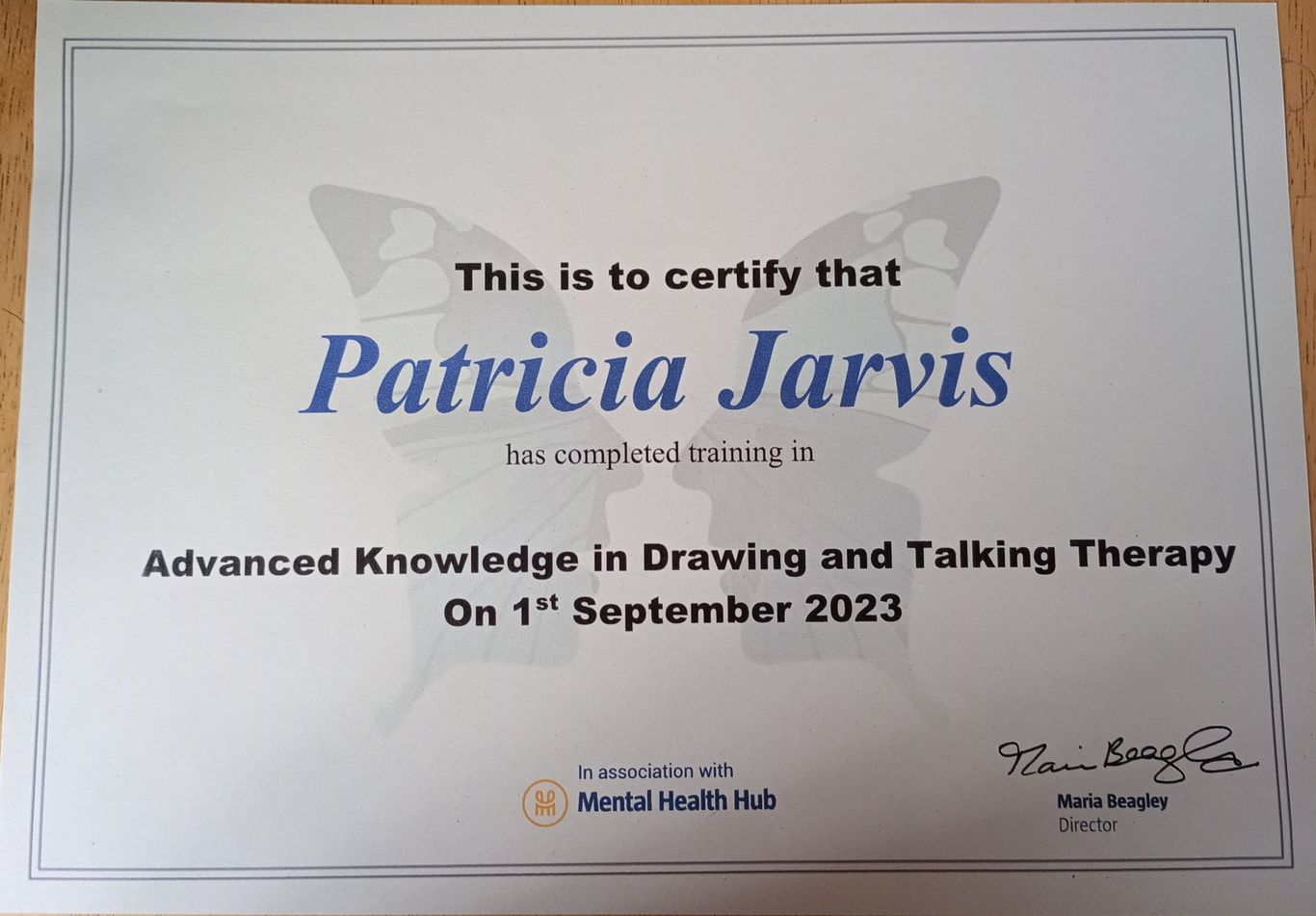
As a Level 3 qualified former Teaching Assistant I can offer short to medium term, temporary and bespoke solutions to some academic needs in Primary Schools.
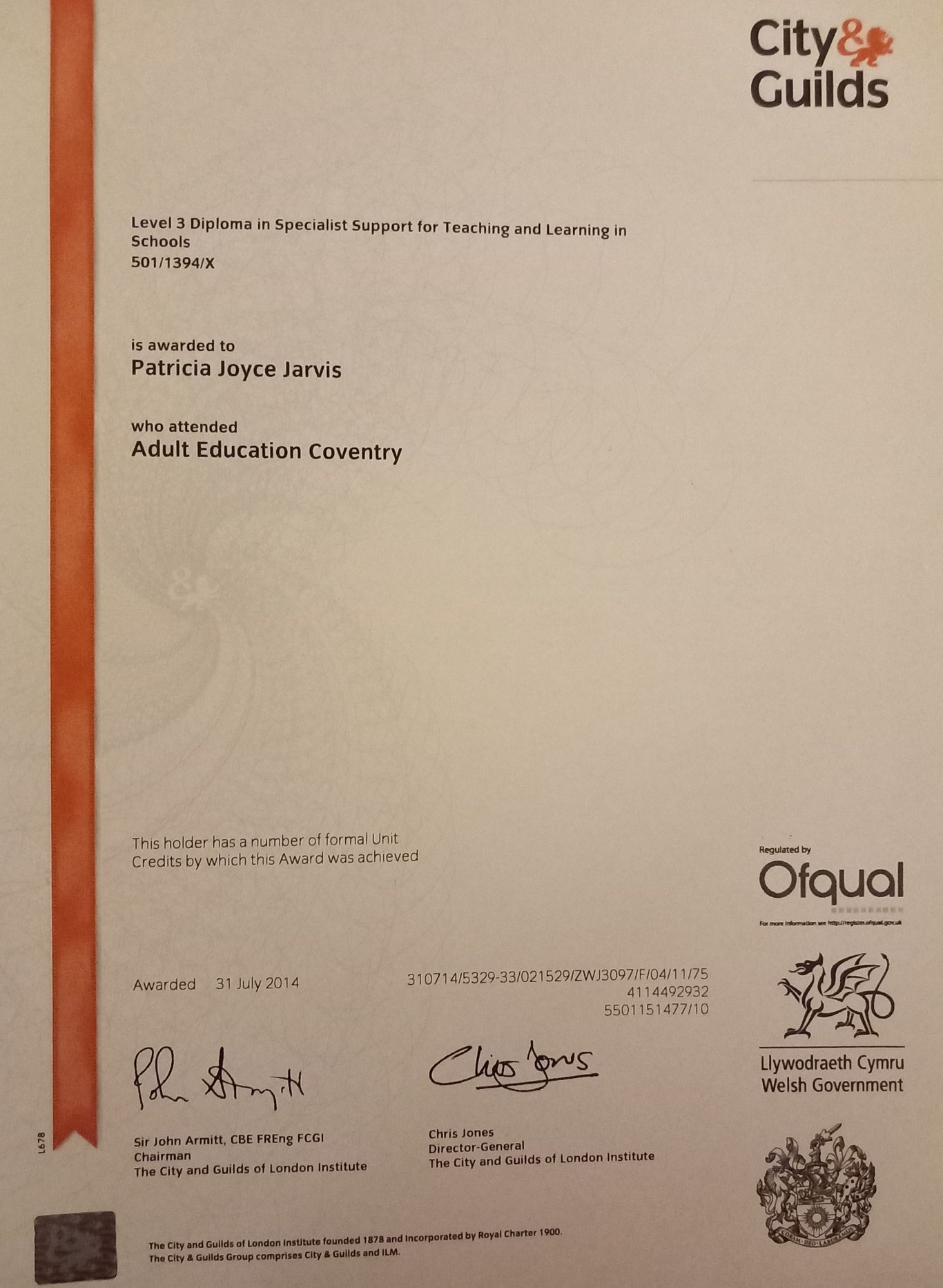
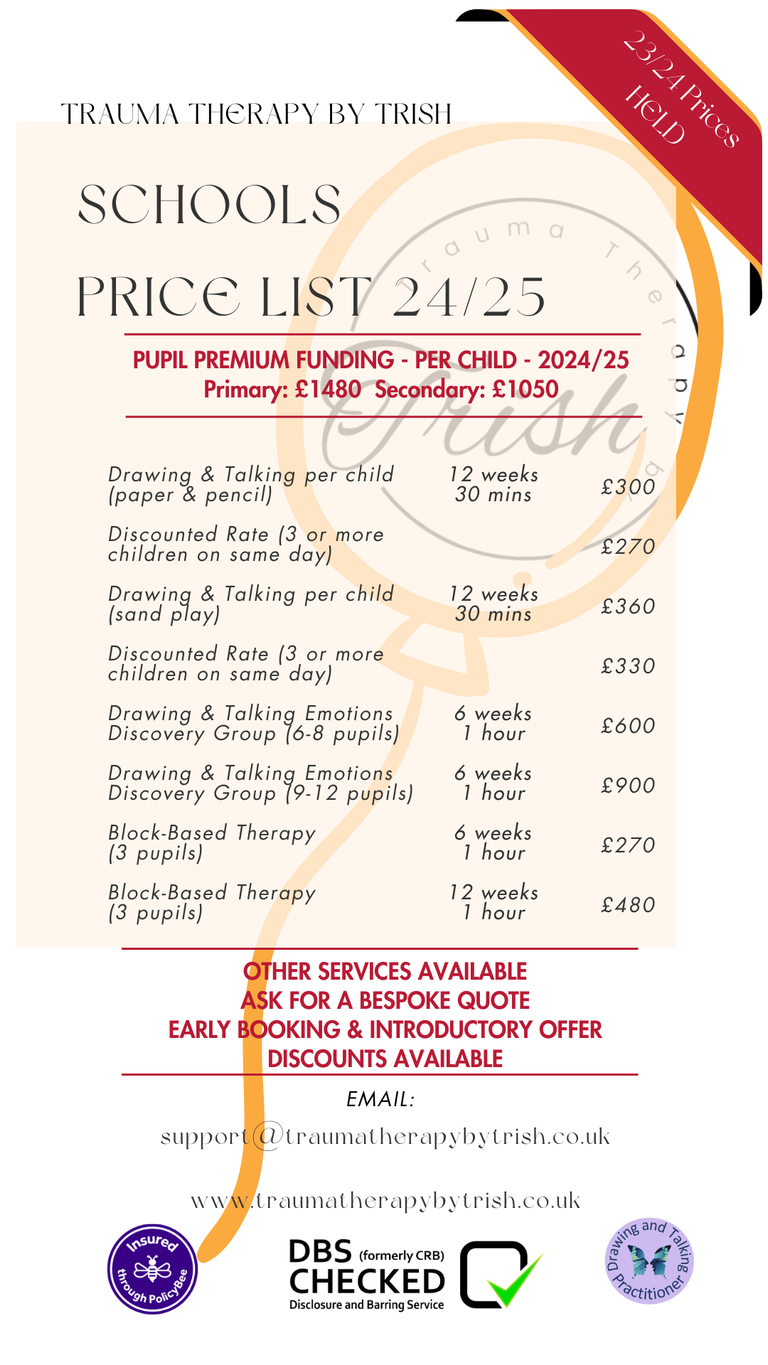
Since Trauma Therapy by Trish began in 2022, base prices have not risen - despite increasing costs, they remain the same again this year.
These Drawing & Talking techniques are 12-week programmes that support pupils and staff to process emotional trauma and anxiety. They can be funded via individual EHCP budgets, general SEND budgets, Pupil Premium Funding or specific Mental Health budgets. It is important to realise the potential wellbeing and academic benefit to a whole class or year group from providing the right support to the right child, in addition to the life-enhancing benefits to the individual child.
These Drawing & Talking techniques are booked in half-term blocks of 5-8 weeks, they help to develop emotional literacy and resilience. As group activities, they also help practice communication skills, turn-taking and team work, but unlike some other team tasks, there are no winners or losers and there is no right or wrong answer. Respect and Empathy underpin this work.

Each session the client is given a clean sheet of paper and a pencil. They can draw whatever they like & talk about whatever they like. At the end of each session the drawing is placed in the client's individual folder and is kept safe by the practitioner.
Research has shown that traumatic memories are stored in parts of the brain not directly reached by talking alone. Drawing allows the deeper part of the brain to be involved, especially the right-hand side of the brain where powerful emotional memories are stored visually.
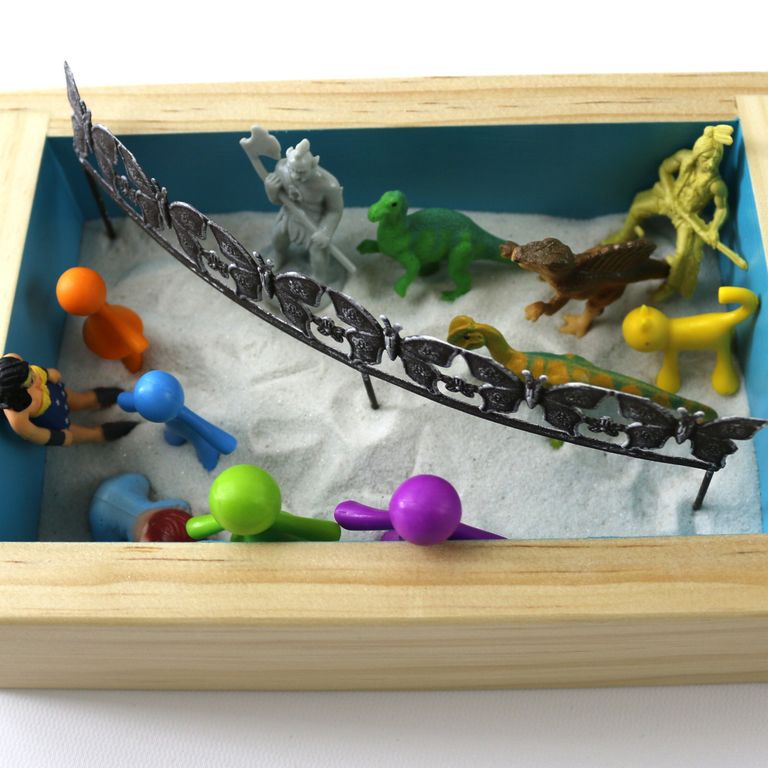
Each session the client will be able to select from a range of items to play in the sand tray with. At the end of the session a photograph of the final sandworld scene is taken and placed in the client's individual folder and is kept safe by the practitioner.
This variation to the D&T activity may be more suitable for younger children, or those who struggle to sit still and draw. It is also suitable for adults, as they may find reaching into the fantasy easier with the sand tray rather than a drawing.
Where a client is old enough to express a preference between sand or paper, this would usually be honoured.

Each week we will discover a different emotion.
Unlike the 1-2-1 work, in these sessions we do the talking first, then the drawing. Artwork is placed in individual folders at the end of each session and kept safe by the practitioner.
This technique helps participants to;
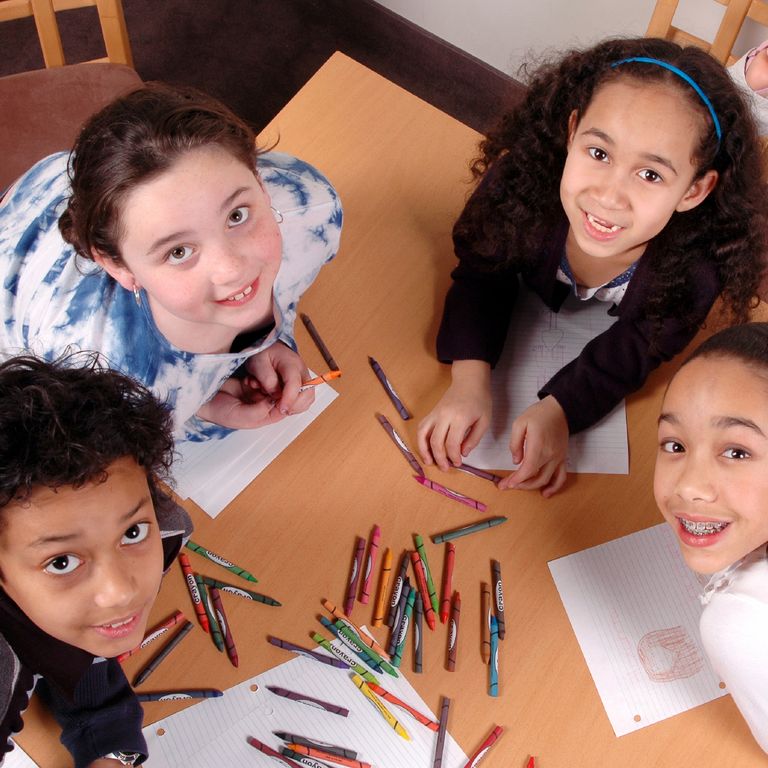
These sessions follow a journey throughout the programme.
Participants develop empathy & listening skills, they form a therapeutic alliance with each other & gradually develop independence (as a group) during the sessions due to the predictable structure. Each week the artwork is placed in individual folders and kept safe by the practitioner.
This particular group work encourages teamwork and may be useful for groups or classes that have not gelled as much as expected.
* Full class sessions must be accompanied by a school TA due to numbers, the staff member should take part in the session.
Bespoke services that can be invoiced, on a "pay only for what you need" basis.

This service can be offered as a whole class PPA cover* slot or as small group interventions.
I have undertaken RWI handwriting training, so can make this fun and reinforce phonics at the same time!
Using imaginary "magic pens" visual pictures and an oral mantra, which can prevent some of the common letter formation problems, alongside paper and pencil - which will provide evidence.
Sessions also cover writing posture, pencil grip and helper hands. As an experienced SEND TA, I will also pass on any suggestions for additional equipment (pencil grips / triangular pencils / core muscle support cushions / footrests).
Sessions will begin with fine-motor warm up skills (pencil aerobics) to strengthen those muscles.
Book only for the cover you need;
* Full class sessions must be accompanied by a school TA due to numbers and to enable consistency between sessions, for best results.
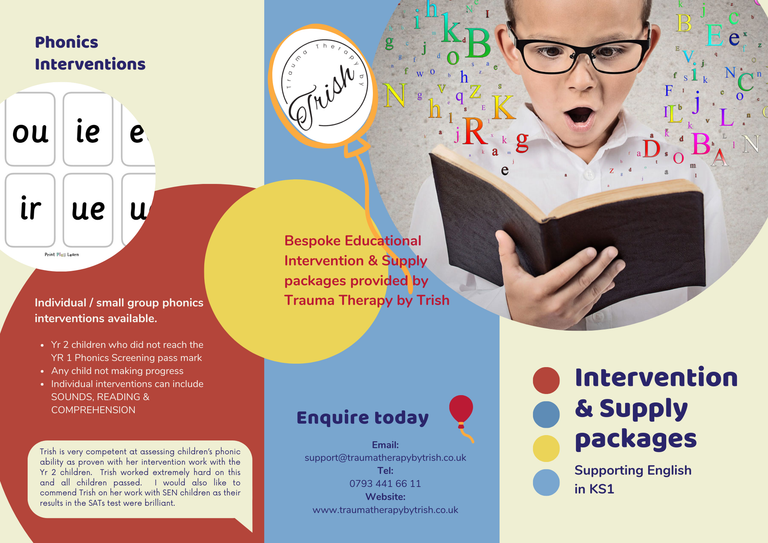
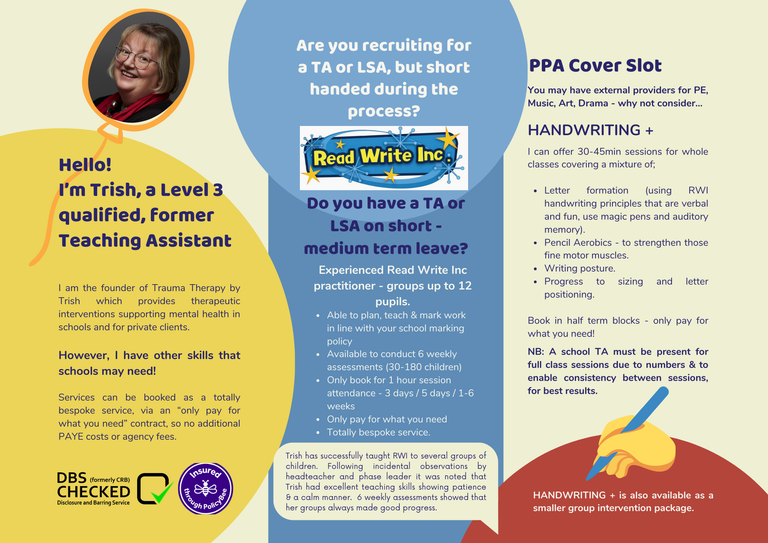
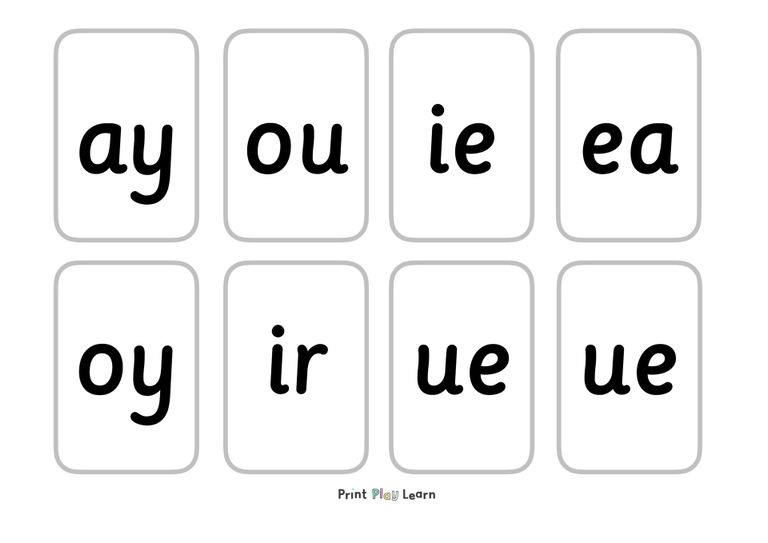
This service can be for small group or 1-2-1 interventions. It is a bespoke service, so you can have a mixture of both!
I have a proven track record of supporting Yr2 children who did not successfully complete the Yr1 phonics screening as well as children who had previously not been making progress.
I have also supported Lower KS2 children using RWI Fresh Start resources.
1-2-1 interventions can also include reading and comprehension alongside phonics.
Real words and alien words can be used.
Please ask if you require red word interventions or spelling support, as the standard form is for phonic reading improvement.
I aim to offer a child-centred approach, so please ask if you have specific requirements.
Book only for the support you need;

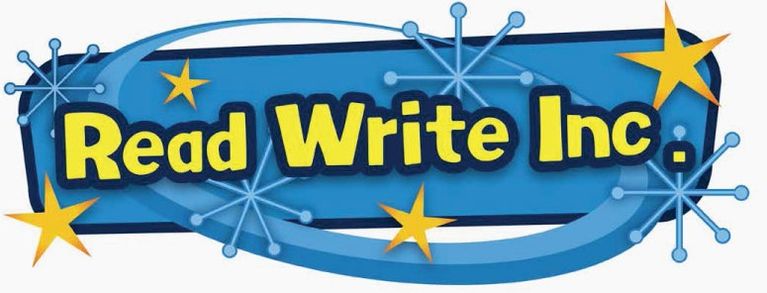
If your school uses Read Write Inc method for teaching phonics, I can help!
Generally, I have availability to teach between 9am-10:30pm before offering Drawing & Talking and other interventions in the afternoons.
I am an experienced RWI practitioner, teaching groups of up to 15 children for their daily 1hr RWI lessons, with a proven track record of all children making good progress.
This service can include planning, delivery & marking (in line with your school marking policy).
6 weekly progress assessments can also be undertaken.
Book only for the cover you need;
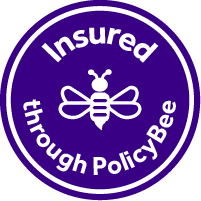
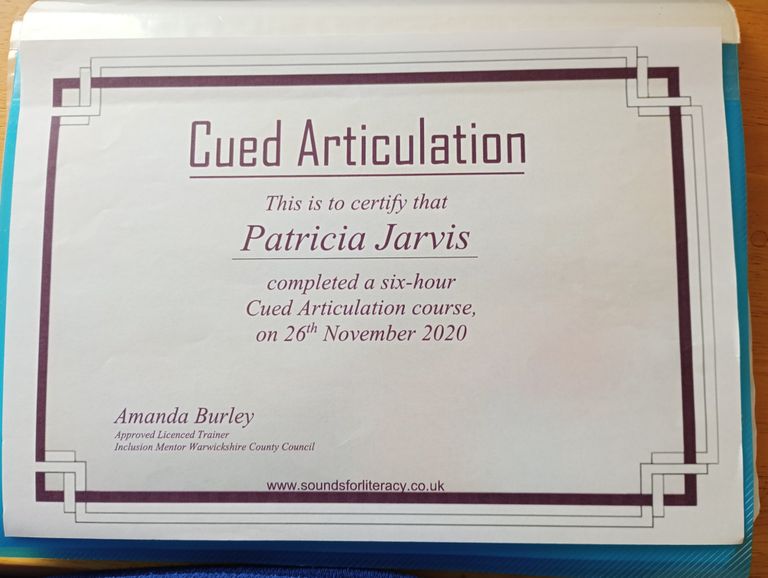
Trauma Therapy by Trish is not a Speech Therapist, and would always encourage confirmation from one as to whether this support may be helpful, if in any doubt. This support can help with individual sound production errors, for example where a substitute sound is used.
In order to make the required sounds for speech, we have to make the right shapes with our mouths and put our tongues in the right place. These develop normally for most children and become habitual so we don't have to think about the individual sounds when we speak.
Some children may hear the sound incorrectly initially or produce the sound incorrectly, and may need some guidance, prompts and practice to form the new habit of making the correct sound.
Cued Articulation provides a visual prompt with the hand as a reminder of how to make the sound in the mouth, encouraging practice and a new habit. Intervention support would include using the Cue, alongside activities and games to practice the sound correctly.
I am now able to offer Block-Based Therapy (Lego Therapy technique, but may use non-branded bricks).
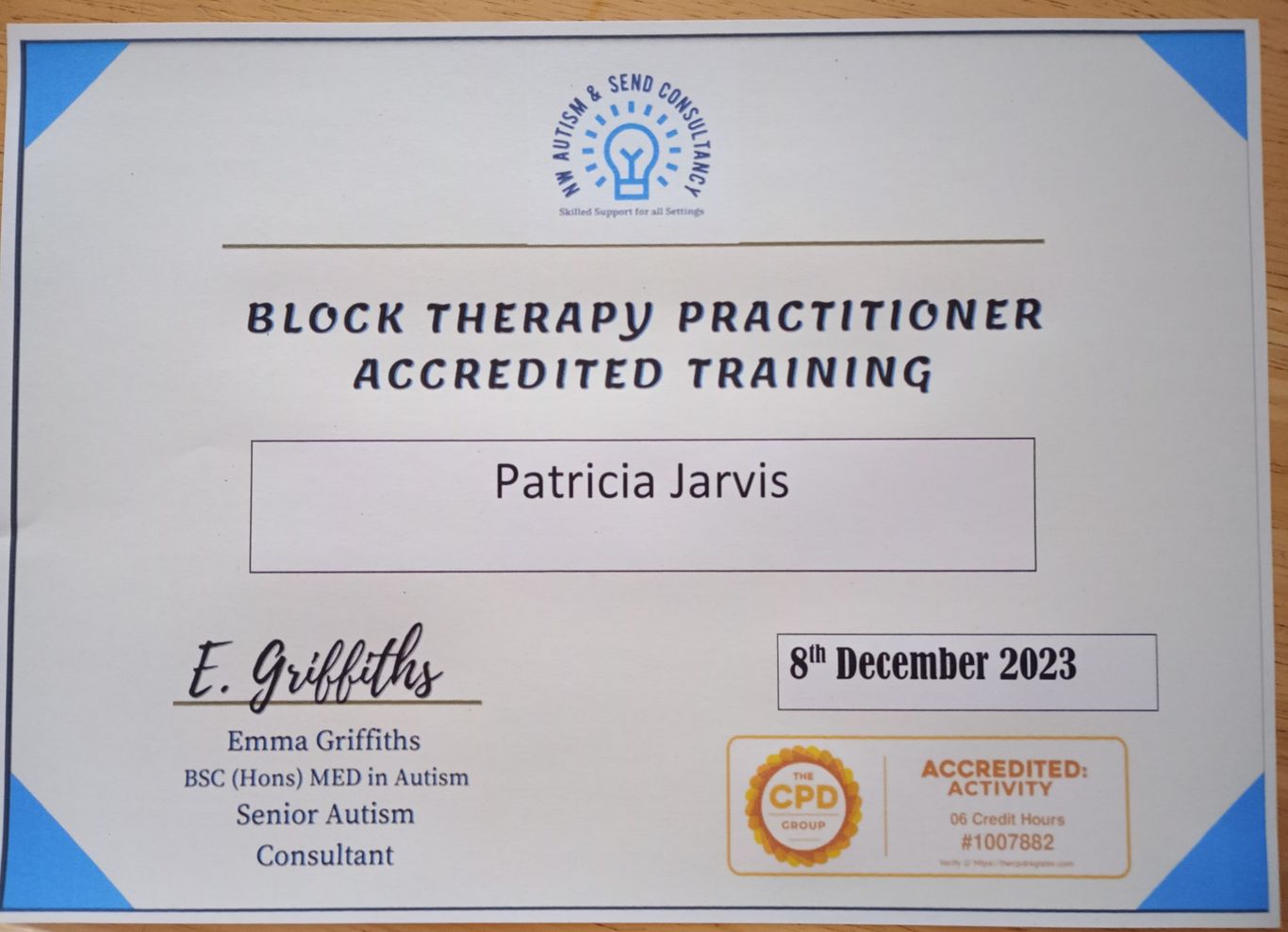
Lego-based therapy was developed by Dr Daniel B LeGoff in 1997. It is an evidence based approach that aims to develop social communication skills in autistic children, such as sharing, turn-taking, following rules, using names and problem-solving.
As LEGO is a registered trademark, "Block-Based" is used instead by many. The technique and theory is the same.
In practice, children work in groups of three with each participant having a distinct role to build a Lego model collaboratively:
"Daniel B. LeGoff, the inventor of LEGO (R)-Based Therapy, has provided a colourful set of case studies to help teachers and clinicians get a real feel for how to implement this playful and non-stigmatising intervention with kids with autism.
LEGO (R)-Based Therapy harnesses their strong drive to systemise to help them learn how to socialise. It is also intrinsically rewarding for such kids. As such, it is a pleasurable experience for both the therapist and the child. " Professor Simon Baron-Cohen, Director, Autism Research Centre, Cambridge University, UK
There is no reason why this technique could not support young people and adults too! Whilst this technique lends itself to the autism strengths of routine and systems, it is not limited in it's benefits to them alone.
The main benefits are:
Alongside this is quality time with an adult facilitator, in a small group setting where they are encouraged and self-esteem can grow.
Sessions are now available of 45-60mins per week, for a minimum of 6 weeks (12 is the most beneficial) in schools and privately in Coventry.
Groups of 3 people are required.
We need your consent to load the translations
We use a third-party service to translate the website content that may collect data about your activity. Please review the details and accept the service to view the translations.